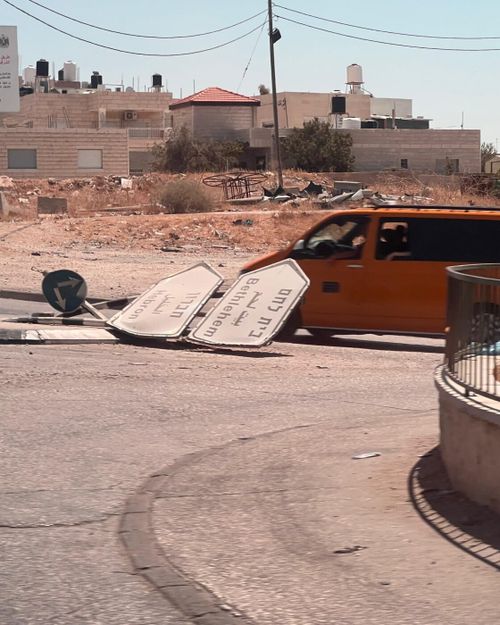Checkpoint Time: Architectures of Control and Resistance

This workshop and seminar brings together scholarly inquiry and grassroots epistemologies to examine how architecture operates as both a means of control and a potential site of resistance. Over the past several decades, an expanding infrastructure of Israeli architectural policies and practices (manifested in a system of checkpoints and separation barriers) has functioned as a central apparatus of domination over Palestinian life and land. Drawing on field-based documentation from the West Bank to examine how this system shapes everyday rhythms of Palestinian life, the programme situates spatial analysis alongside lived testimony and collective forms of knowledge production to reframe architecture as both a medium of apartheid violence and a terrain of struggle and resistance against it.
Programme14:00 – 17:00 Architectures of Suspended Time, a participatory mapping workshop led by Saja Amro
18:00 – 20:00 Seminar with presentations by Helga Tawil-Souri and Abdalrahman Kittana, moderated by René Boer
It is possible to attend the lecture without participating in the workshop.
Participation in the workshop is limited and is open by registration to architecture and design students, as well as educators, activists and practitioners who are interested in exploring spatial justice and participatory design practices. The workshop particularly examines the system of colour-coded metal barriers proliferating over the last two years, which has further deepened the fragmentation of Palestinian life and movement within and across the West Bank. Conceived as instruments of collective punishment, these barriers function as architectural extensions of a settler-colonial project intent on further entrenching apartheid and advancing the illegal annexation of the West Bank.
Through exercises in spatial mapping, visualisation, and storytelling, participants will explore the temporalities of Israeli checkpoints using first-hand accounts from Palestine, examining them in relation to design strategies historically employed in colonial architectures and infrastructures — opening spaces for reflection, agency, and resistance.
Register for the workshop here and for the seminar here.
AboutDr. Abdalrahman Kittana is a Palestinian architect, academic, and researcher whose work examines urban resilience, architectural history, postwar reconstruction, and the intersections of cities and armed conflict. He is currently a Postdoctoral Fellow at Tampere University in Finland and an Assistant Professor in the Department of Architectural Engineering and Planning at Birzeit University in Palestine. He earned his PhD in Architecture from KU Leuven, Belgium, in 2020. In 2019, he co-founded the Yalla Project, an interdisciplinary research-by-making initiative in Nablus dedicated to urban regeneration through collaborative practice.
Dr. Helga Tawil-Souri is a Palestinian-American Associate Professor of Media, Culture, and Communication, an associate professor of Middle East and Islamic Studies and a Director of Graduate Studies New York University Steinhardt. Her work focuses on technology, media, culture, territory and politics, with a focus on Palestine and Israel.
Saja Amro is an architect, educator, and designer based between The Netherlands and Palestine. She graduated at Sandberg Institute in 2022. Her work investigates the influence of spatial design on social dynamics in education. In her practice, she disrupts traditional classroom structures, aiming to rebuild them on the principles of radical pedagogy. As a tutor at the Architecture Department of the Gerrit Rietveld Academie, Saja uses the classroom as a place to collaborate with her students and reimagine spaces inspired by popular education methodologies, and roots of indigenous cultures.
René Boer works as a critic, curator and organiser in and beyond the fields of architecture, design, heritage and the arts. He is a founding partner of Loom – Practice for Cultural Transformation, part of the transnational platform Failed Architecture and affiliated with various urban social movements as well as art, architecture and design schools in Amsterdam and beyond.
This event is in English. Admission is free.
Do you also think art should be free and accessible? Please consider supporting us with a donation when registering or by becoming a Framer Framed Friend!
This event may be photographed and filmed. Kindly let us know in advance if you prefer not to have your picture taken. For seated programmes, places are always made available for wheelchair users. Please speak to the host before the programme begins.
Framer Framed is supported by the Ministry of Education, Culture and Science; Amsterdam Fund for the Arts; Municipality of Amsterdam; and VriendenLoterij Fonds.